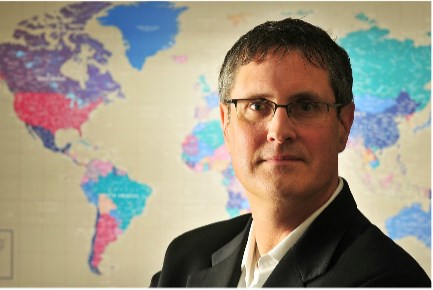We’ve all seen the photo. And what the Ottawa Citizen was the first to report this week, before Alan Kurdi’s pitiless body washed up on a Turkish beach, he and his family were possibly on their way to Canada. To Coquitlam, to live with an aunt who was trying to sponsor one of her brothers at a time.
The policy and systems are in place to bring Syrian refugees to Canada in as little as 72 hours, said Chris Friesen, the chairman of the Canadian Immigrant Settlement Sector Alliance [CISSA]. He said there are several ways the Canadian government can immediately help address the Syrian refugee crisis, the largest displacement of people since the Second World War, and his organization is pushing for just that.
This image of the body of a Syrian boy drowned today on a Turkish beach is emblematic of the world's failure in Syria pic.twitter.com/IYiIPgvieG
— Liz Sly (@LizSly) September 2, 2015
“If the government of Canada had initiated what we’re calling on today, which is an expedited extended family reunification process, then perhaps that [death of Alan] could have been abated,” said Friesen from his Vancouver office Thursday.
“Essentially we are calling on the government of Canada to initiate a multi-pronged approach to the crisis, well beyond what the government is doing right now. We’ve provided half a dozen concrete suggestions.
“No. 1 on the list is initiating Canada emergency refugee contingency plan, which nobody is talking about. We developed this in 2002 after the Kosovar refugee resettlement in 1999."
Only 72 Syrian refugees have arrived in B.C. in the past two years. The number could and should be much higher.
“Canada accepted about 20,000 Kosovar refugees from the former Yugoslavia during the bombings,” said Friesen. “At that time, close to 20,000 Kosovars came in a four-month period and the Canadian armed forces were involved. They open up military bases back east so that refugees could be immediately flowed out of parts of Europe and the Mediterranean.”
In February, the UN appealed to developed nations to accept 100,000 Syrian refugees. In response to similar appeals, Canada has historically resettled one in 10 refugees.
The CISSA is calling on Canada to increase funding, enact existing policy and basically open Canada’s borders to refugees as the country has done in the past.
These are five things the CISSA is calling on the government to do:
1. Immediately implement the pre-activation stage of Canada’s Emergency Refugee Contingency Plan, which includes putting on alert Canada’s current 36 refugee reception centres, sponsorship agreement holders and the Ministry of Defence in the use of Canada’s military bases for possible immediate relocation of Syrian refugees from Europe, and consulting with provincial ministers responsible for immigration.
2. Consult immediately with UN’s refugee agency and European states to determine current Syrian refugee resettlement needs. Multilateral consultations are needed to finalize an emergency resettlement target.
Friesen said, “In February of this year, the UN had an immediate appeal for 100,000 [Syrian refugees] and given the historic context that we take by and large one out of every 10 refugees for resettlement through the UN request […] Canada should accept 10,000 over and above our current commitment.”
3. Process all Syrians in Europe who have direct family ties in Canada for emergency family reunification including, if necessary, the issuance of a minister’s permit to expedite their immigration process. Family should be defined as it was during Kosovar refugee movement in 1999 as “extended family” members that include grandparents, uncles, aunts, parents, nephews, etc.
Said Friesen, “Any family that has a direct tie in Canada — regardless of what county they currently reside in, they should be processed immediately with ministerial permit with immediate transportation to Canada. That process can be as short as 72 hours if the government of Canada wants to do because they have the policy and the system in place. Up to now they have not.”
4. Increase funding to the UN refugee agencies emergency operations. Canada currently contributes $81 million annually to these operations. The CISSAS suggests Canada make a one-time initial emergency contribution of $400 million.
“To put that into perspective,” added Friesen, “less than six months of their Iraqi military exercise cost Canada $500 million. We can easily find $400 million to support our European colleagues.”
5. Provide through the ministry of citizenship and immigration $10 million annual funding for refugee reception centres to implement first-language trauma support programs. An increased number of resettled refugees are arriving with significant trauma that require immediate professional interventions to assist their long-term integration process. Similar federal government commitment has been in place for years in Australia where, like Canada, health is a provincial responsibility.



